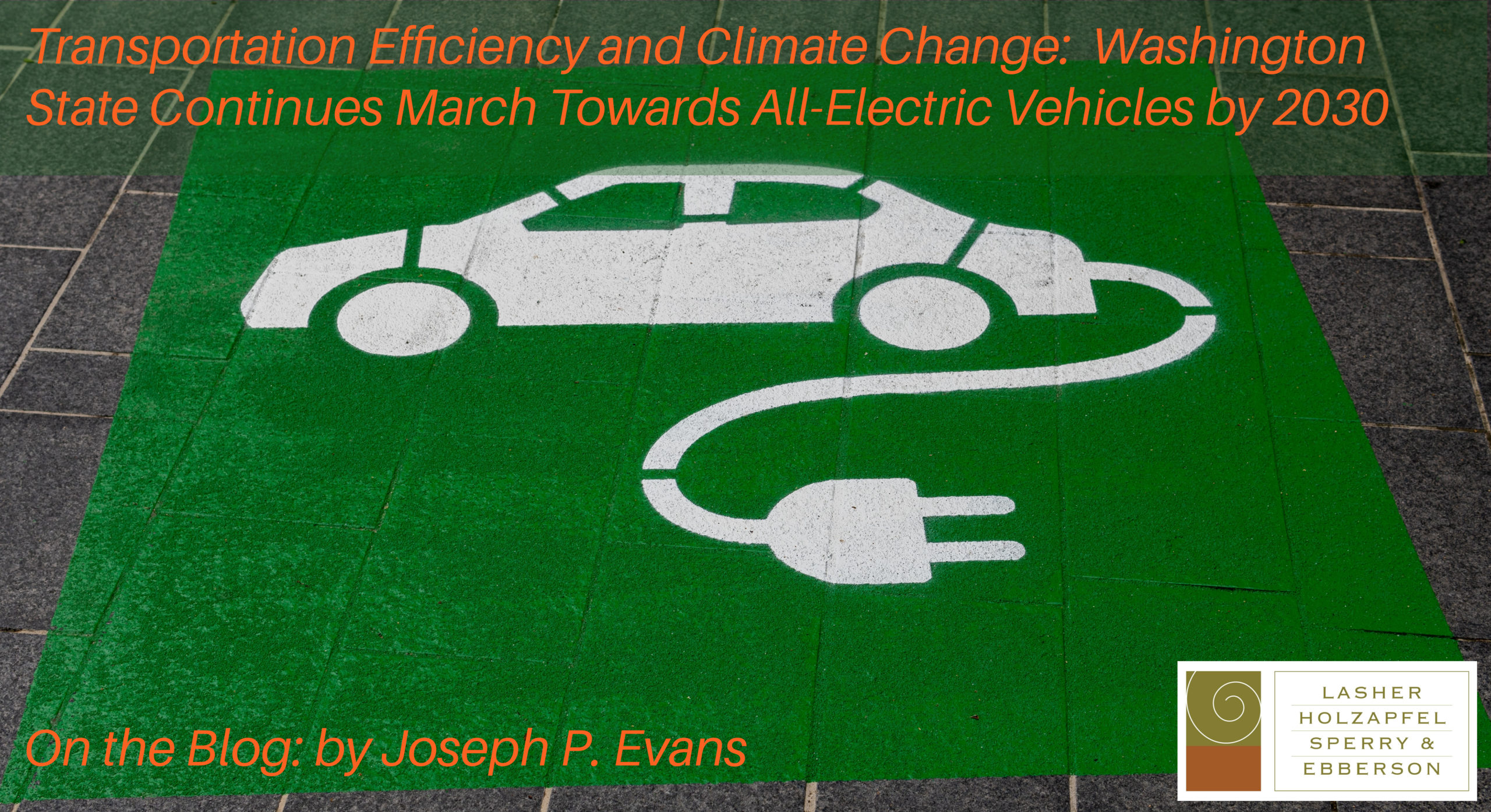Transportation Efficiency and Climate Change: Washington State Continues March Towards All-Electric Vehicles by 2030

Posted on July 28, 2022 by Joseph Evans
Washington’s legislative bill ESHB 1793 was codified as RCW 64.90.51, effective June 9, 2022, and governs electronic vehicle charging stations in common interest communities. RCW 64.90.51 in part prohibits condominium unit owners’ associations (“COAs”) from placing unreasonable restrictions on the installation or use of an electric vehicle charging station at any newly-constructed condominium building in the state. This recent law generally requires that a COA promote, encourage, and remove obstacles to the installation and use of on-site electric vehicle charging stations. More importantly though, RCW 64.90.51 also creates liability for any COA that willfully violates the act and establishes a civil penalty, in addition to an award of attorneys’ fees.
This statute reflects the Washington legislature’s trend of seeking to bolster the proliferation of electric vehicles within our state. For example, during 2021, Governor Inslee signed into law what is now RCW 19.27.540 requiring the Washington State Building Code Council to adopt rules for electric vehicle service equipment (“EVSE”) installation at all new condominium buildings that provide on-site parking. Under that statute, a newly-constructed condominium building in Washington State must provide at least one parking space, or ten percent of parking spaces rounded to the nearest whole number, as made-ready for an electric vehicle charging station. Further, the electrical capacity of any newly-constructed building must accommodate the potential to serve a minimum of twenty percent of the total parking spaces with EVSE capabilities.
Approximately one-third of Washingtonians live in residences that will be affected by this legislation. While in Washington there are several statutes that might govern and control COAs and their management, depending upon which year the pertinent declaration was recorded, RWC 64.90.51 applies to all COAs, as well as anyone living in a common interest community.
Thanks to the rapidly improving technology and lowered costs, electric vehicles are indeed becoming the dominate option for consumers. It is important that our infrastructure also changes to meet that rising demand, and ESHB 1793 is evidence of that changing infrastructure. As we continue to evolve, it is imperative that both COAs and individual unit owners stay up-to-date on these changes to ensure compliance with our state’s real property laws or risk a potential penalty or lawsuit. COAs and condominium unit owners must stay proactive and consult attorneys when necessary. The attorneys of Lasher’s Real Estate and Business Litigation practice groups are available to help, if needed.

